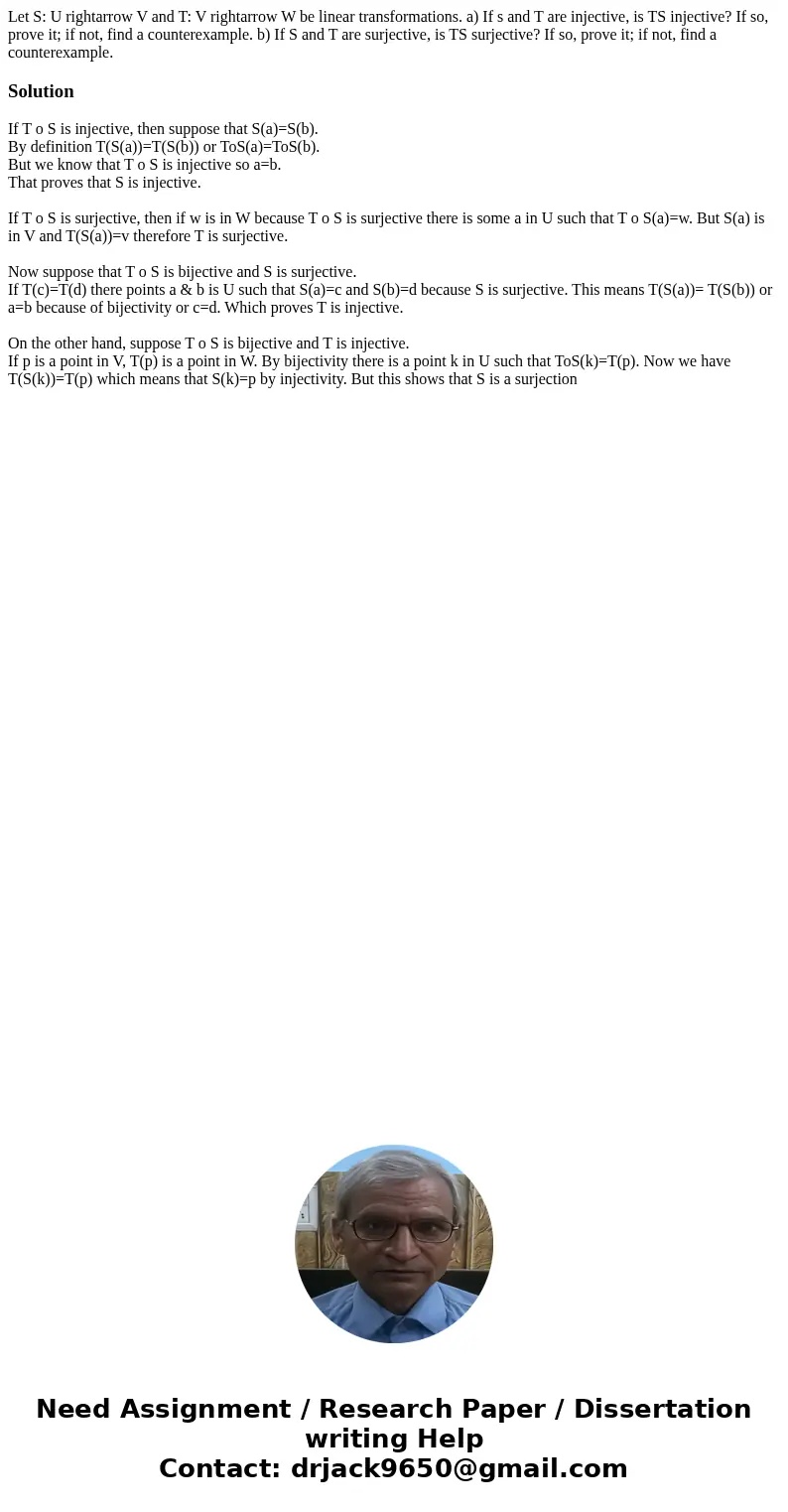Let S U rightarrow V and T V rightarrow W be linear transfor
Solution
If T o S is injective, then suppose that S(a)=S(b).
By definition T(S(a))=T(S(b)) or ToS(a)=ToS(b).
But we know that T o S is injective so a=b.
That proves that S is injective.
If T o S is surjective, then if w is in W because T o S is surjective there is some a in U such that T o S(a)=w. But S(a) is in V and T(S(a))=v therefore T is surjective.
Now suppose that T o S is bijective and S is surjective.
If T(c)=T(d) there points a & b is U such that S(a)=c and S(b)=d because S is surjective. This means T(S(a))= T(S(b)) or a=b because of bijectivity or c=d. Which proves T is injective.
On the other hand, suppose T o S is bijective and T is injective.
If p is a point in V, T(p) is a point in W. By bijectivity there is a point k in U such that ToS(k)=T(p). Now we have T(S(k))=T(p) which means that S(k)=p by injectivity. But this shows that S is a surjection

 Homework Sourse
Homework Sourse